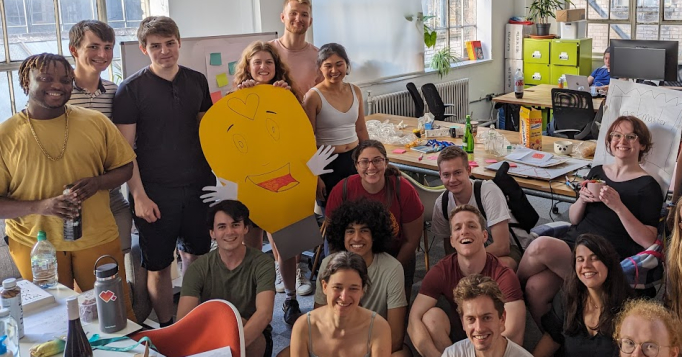The Taskmasters invites you to show your mettle in a bitter battle for prestige and glory. Get ready to prioritise, optimise or muddle through a range of wacky EA-themed tasks for the chance to see your team be crowned as champions!
This year is a cross-over event with AIM's Charity Entrepreneurship program and they are kindly hosting us in their new central London offices. (Application deadline for their February 2025 program is 15th September - apply here)
Logistics
| 12:00 | Lunch social |
| 13:00 | Team allocation All participants must arrive before the game starts or face forfeits |
| 13:30 | Game begins - the envelopes can be opened |
| 3 hours 30 mins active game time | |
| 17:00 | Game ends |
| 1 hour for TMs to calculate final scores | |
| 18:00 | Announcement of winners and photo highlights presentation |
| 19:00 | Dinner social nearby |
What should I bring?
- Water bottle
- Snacks
- Phone / Laptop / Tablet may be required for some tasks
How it works
All teams will be provided with the same too long list of tasks and will compete to be the team with the highest point value by the end of the game.
- Tasks have different point values ranging from easy tasks (low hanging fruit) to higher difficulty/risk but higher reward tasks.
- If multiple teams complete the same task then the point total will be allocated by the Taskmasters between the teams
- Final point allocation is at the discretion of the Taskmasters and will be based on entertainment value
You can read more about the format here


Greetings, contestants!
Your day of reckoning begins at 13:00 sharp. Latecomers may find themselves starring in their own private task of shame involving whatever props I found in the AIM storage closet.
For the overeager among you, there's an optional "bring your own" lunch at 12:00. This is your chance to meet other contestants for some light pre-game psychological warfare over some sandwiches. Plus, you can help with the setup, which may or may not earn you some favor in my eyes. No promises, though.
Remember, there's more tasks than time and wide variety in point values. Choose wisely, or don't - your futile attempts at strategy amuse us equally.
May the contestants with the most robust decision-making under absurd conditions win (as arbitrarily decided by yours truly).
Your benevolent Taskmasters
P.S. Leave your dignity at the door. You won't be needing it.